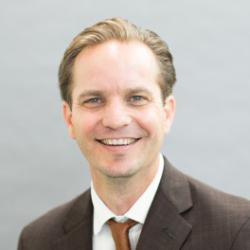As our Acton Institute prepares for its Rome conference tomorrow, December 4, on the Dominican contribution to “Freedom, Virtue, and the Good Society”, extraordinary men and women from the Order of Preachers come to mind: Albert the Great, Catherine of Siena, and perhaps the most famous of all, the Angelic Doctor, Thomas Aquinas.
Together these medieval stalwarts of the faith, truth, and justice laid the groundwork for modern science, modern learning, and even modern politics.
The great Dominican heritage may have been lost completely in the modern era, especially in post-revolutionary 19th century France, had it not been for another hero of the same white and black ilk: Henri-Dominique Lacordaire, O.P.
 It was Fr. Lacordaire who embraced some of the virtues of modernity while successfully restoring the traditional religious Order of Preachers in France, after Napoleon had banished all convents and monasteries from Catholicism’s Eldest Daughter. And not before many of his fellow French friars, as well as those from other orders, were executed by the guillotine or chased out of France.
It was Fr. Lacordaire who embraced some of the virtues of modernity while successfully restoring the traditional religious Order of Preachers in France, after Napoleon had banished all convents and monasteries from Catholicism’s Eldest Daughter. And not before many of his fellow French friars, as well as those from other orders, were executed by the guillotine or chased out of France.
Why did Napoleon view the Dominicans as such a threat to the French State?
For one reason, the men and women in white habits and black capes – just like the other great medieval orders – established independent communities with their own councils and governing “Rule”. They acted as mini-private religious states within a gigantic secular state which had great difficulties controlling and monitoring them.
Secondly, the Dominicans had deep educational influence in France, and specifically in teaching the values and common good associated with the Kingdom of Christ, as opposed to the ends and purposes of the atheist-leaning Empire of Napoleon. In effect, the Dominican universities and schools served as base camps for Christian civil society to grow and flourish in France and throughout Europe.
Lastly, the Dominican religious communities were not only independent and influential, they were strong and resistant financially because of their vast private assets. Napoleon had to literally expropriate these private assets, mostly land titles and real estate, while impoverishing such orders for generations to follow and forcing Catholic priests later to rely on handouts and salaries from the secular French state.
Lacordaire, in order to help educate the Catholic public in important matters of religion and politics, launched a newspaper called L’Ami de l’Ordre (which later became L’Avenir) with the famous motto/battle cry “God and Freedom!”. The newspaper promoted a classical liberal political philosophy that was compatible with Catholic magisterial teachings. In 1830 he published a statement calling for the separation of Church and State:
We firstly ask for the freedom of conscience or the freedom of full universal religion, without distinction as without privilege; and by consequence, in what touches us Catholics, for the total separation of church and state… This necessary separation, without which there would exist for Catholics no religious freedom, implies, for a part, the suppression of the ecclesiastical budget, and we have fully recognized this; for another part, the absolute independence of the clergy in the spiritual order… Just as there can be nothing religious today in politics there must be nothing political in religion.
Before he died, Henri-Dominique Lacordaire went on to fight for other types of modern civil liberties, including allowing private Catholic schools to form charters and teach what they wanted independently of state demands tied to state funding.
He also urged the reestablished ranks of French Catholic clergy not to take government stipends, so as to have ‘no strings attached’ to the national regulations of the Catholic Church. In 1830, said: “We are preyed upon by our enemies, by those who regard us as hypocrites or as imbeciles, and by those who are persuaded that our life depends on money… Freedom is not given, it is taken.”
Henri-Dominque Lacordaire passed away at the young age of 59 in 1861, only a few months after delivering a famous eulogy on one of the greatest defenders of liberty and modern democracy, Alexis de Tocqueville.
Before passing himself, he was recorded his famous last wish: “I wish to die a penitent religious and unrepentant liberal.”

